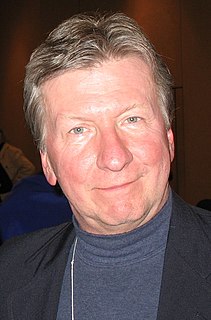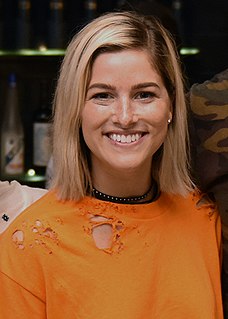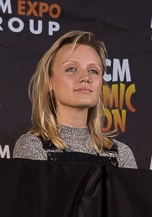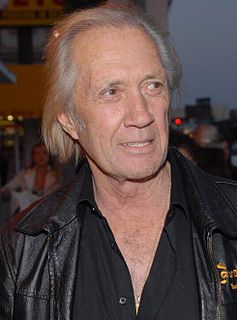A Quote by Chinua Achebe
When I'm writing, I really want to satisfy myself. I've got a story that I am working on and struggling with, and I want to tell it the most effective way I can. That's really what I struggle with. And the thought of who may be reading it may be there somewhere in the back of my mind - I'll never say it's not there because I don't know - but it's not really what I'm thinking about.
Related Quotes
I think humor really is the most effective way for me personally to express myself. When I see an incredible formalist painting, I respect it. I really do. I see its history and I get it. But when I pass something weird or something funny, I totally associate with it. I find myself thinking about it later that day. That's how I know something is thought provoking. That's how I know something is effective.
Let's say I've directed that [writing] energy into writing my latest book but suddenly, I really want to write about an onion. I don't say to myself, "No, you have stay on the subject," because I know that the longer I stay on the subject the more boring I get. So, if my mind wants to write about an onion, it might be a deeper way to go into what I'm working on, even though it might seem irrelevant. This is how I've learned to follow my mind.
I'd say my relation to being a woman is, I mean being a woman is whatever you want because the concept of gender is not really real, you know? And so for me it's about being comfortable in myself. It's about allowing myself to express who I am in any way that I want to, whether that be through my clothing, the way I present myself to the world, whether that be through like my gender identity and my pronouns. It's just really about allowing yourself to really be expressive and creative.
Something I always tell students is, when you're writing something, you want to write the first draft and you want it to come out easily in the beginning. If you're afraid to say what you really have to say, you stammer. [...] You're judging yourself, you know, thinking about your listener. You're not thinking about what you're saying. And that same thing happens when you write.
I can't say that I am a DVD junkie. I see most films that I want to see in the theater, and so most of my DVD-watching is catching up with the occasional movies that I missed or revisiting a film that I really care about, in which case I really want the extra channels, because it's a movie that I already love, and I want to know more about it.
Memoirists, unlike fiction writers, do not really want to 'tell a story.' They want to tell it all - the all of personal experience, of consciousness itself. That includes a story, but also the whole expanding universe of sensation and thought ... Memoirists wish to tell their mind. Not their story.
For the future, I don't want to make solid plans, because you never know what will happen, but I know I don't want to be bored. I really try to focus on the present and be ready for every opportunity. I am so happy with my career and personal life. I never thought I would be working in television and movies, so I am very lucky.
And then afterwards I worked in advertising for a year which taught me about writing even when you don't want to (laughter) because there's never a moment that you want to write about an Erickson cell phone but you have to. And that's really important you know obviously for the...like if you really want to write, you have to write every day no matter how you feel or you know. And then, yeah, and then I ended up working in TV and then from TV into movies and then directing, so.







































